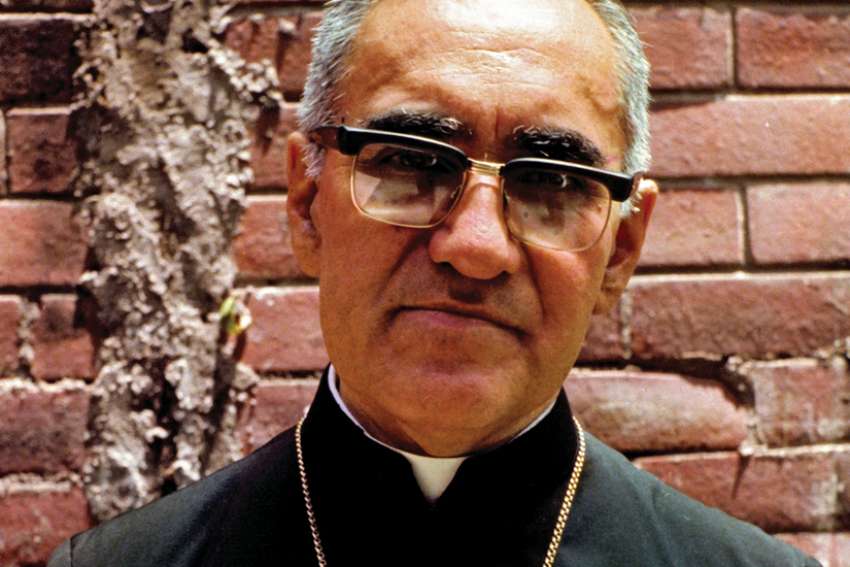Symposiums, concerts, theatre pieces and even international pilgrimages to remember St. Romero came to a halt when the country abruptly shut down its airport March 17, 2020, just days before the March 24 celebration of the Salvadoran saint. In an effort to keep out the coronavirus, the president put the country on lockdown, closing almost all buildings, including churches, in the predominantly Christian nation.
But this year, hundreds of devotees of the Salvadoran archbishop, martyred by a single bullet as he celebrated Mass in 1980, double-masked their faces — some wore face shields — and packed the cathedral in San Salvador, heading down to the crypt to touch the tomb where the saint is buried. Some rubbed the miter on the bronze work of art that covers his tomb, kneeled and cried in front of it as they asked for the saint’s intercession in liberating the world from the pandemic and El Salvador of the social ills it faces today.
During a March 24 Mass commemorating the saint’s martyrdom, Archbishop Jose Luis Escobar Alas of San Salvador said in a homily that if St. Romero were alive today, he would “advocate for an El Salvador free of impunity, corruption, one with true social justice, with opportunities for all to advance ... a country free of violence and one of peace.”
In some circles, the pandemic has become almost a side conversation, just another calamity in a long list of challenges, such as gang violence and lack of jobs, that Salvadorans face.
Following a tense campaign for legislative and municipal elections — two people died — El Salvador’s problems will not be solved with a vaccine.
The archbishop said in his homily that Salvadorans face an unjust system of “spurious laws” that, “far from protecting the vulnerable and weak, protect capital, delinquency and corruption.” St. Romero would ask for reform of the social security or pension benefits, tax codes, the rights of workers, migrants and women — all groups whose difficulties have become even more pronounced during the pandemic.
But others wonder whether the new period that starts May 1, with new political leaders, will bring about the change El Salvador desperately needs. During the feast of St. Romero, they turned to him in prayer.
In northern El Salvador, Fr. Gilberto Robles, pastor of the main church in San Fernando, gathered with his flock in a small church in the nearby village of Jesus del Valle to mark the eve of St. Romero’s feast. He addressed a prolonged period of militarization in his parish, which borders Honduras. At first authorities said the soldiers were there to prevent possibly infected people from entering El Salvador through blind spots in the mountainous region and, when more soldiers were sent in last October, the government said the soldiers were there to prevent narcotrafficking.
“It feels as if we’re in a war, not just in a pandemic,” said Robles. “We feel controlled, under surveillance.”
With tensions running high, prelates and clergy said the Salvadoran saint should be a symbol of hope for those who feel anguish and uncertainty and urged them to remember that they have an intercessor in Heaven.
“St. Romero wasn’t just about homilies,” said Bishop Oswaldo Escobar Aguilar during a presentation in San Salvador about a book he published on St. Romero. The book chronicles the saint’s visits to the Diocese of Chalatenango, which Escobar now leads. “He was about people, human rights.”
And now with the 2018 canonization that has led others to learn more about what he stood for, “Romero doesn’t just belong to the Catholic Church, nor to Salvadorans but to those who uphold human rights worldwide,” he said.


